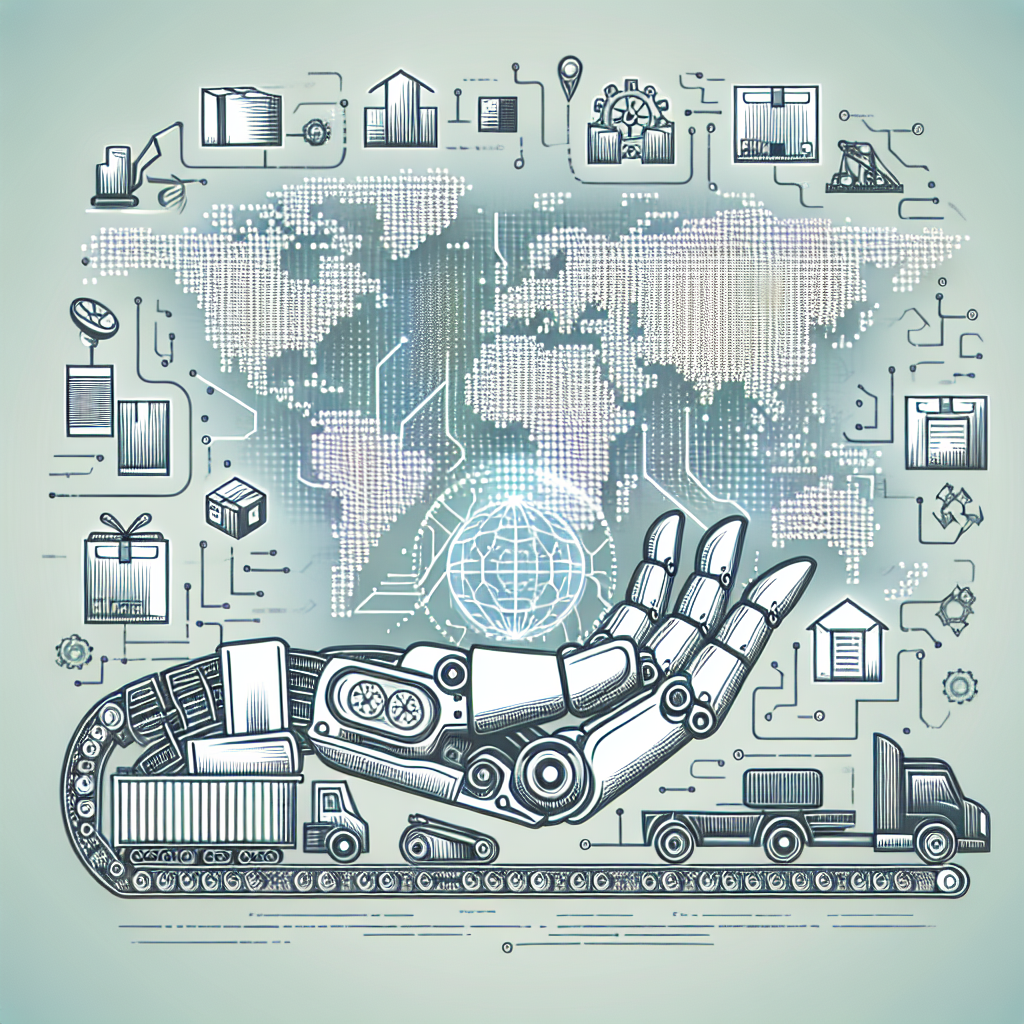The Role of AI Automation in Supply Chain Management
In today’s fast-paced and ever-changing business landscape, supply chain management plays a critical role in ensuring the smooth and efficient flow of goods and services from production to consumption. With the increasing complexity and global nature of supply chains, businesses are turning to artificial intelligence (AI) automation to help streamline processes, reduce costs, and improve overall efficiency.
What is AI Automation?
AI automation refers to the use of artificial intelligence technologies to automate tasks and processes that were previously performed by humans. These technologies include machine learning, natural language processing, computer vision, and robotics, among others. By leveraging AI automation, businesses can improve decision-making, increase productivity, and reduce errors in various aspects of their operations, including supply chain management.
Benefits of AI Automation in Supply Chain Management
There are several benefits of using AI automation in supply chain management, including:
1. Improved Forecasting Accuracy: AI algorithms can analyze large volumes of data to identify patterns and trends that can help businesses make more accurate demand forecasts. By predicting future demand more accurately, businesses can optimize inventory levels, reduce stockouts, and minimize excess inventory.
2. Enhanced Inventory Management: AI automation can optimize inventory levels by analyzing historical sales data, current market trends, and other factors to determine the optimal reorder point and order quantity for each product. This can help businesses reduce carrying costs, minimize stockouts, and improve customer satisfaction.
3. Efficient Transportation and Logistics: AI automation can optimize transportation routes, modes, and schedules to minimize transportation costs and improve delivery times. By analyzing real-time data on traffic, weather, and other variables, AI algorithms can help businesses make informed decisions to streamline their transportation and logistics operations.
4. Enhanced Supplier Relationship Management: AI automation can help businesses identify and evaluate potential suppliers based on various criteria, such as price, quality, and lead times. By analyzing supplier performance data and market trends, businesses can make more informed decisions about which suppliers to work with and how to optimize their relationships.
5. Real-time Visibility and Tracking: AI automation can provide real-time visibility into the status and location of goods throughout the supply chain. By using sensors, RFID tags, and other tracking technologies, businesses can track shipments, monitor inventory levels, and identify potential bottlenecks or delays in the supply chain.
6. Reduced Costs and Increased Efficiency: By automating repetitive and time-consuming tasks, AI automation can help businesses reduce labor costs, minimize errors, and improve overall efficiency in supply chain management. This can lead to cost savings, increased productivity, and a competitive advantage in the market.
FAQs about AI Automation in Supply Chain Management
Q: What are some common applications of AI automation in supply chain management?
A: Some common applications of AI automation in supply chain management include demand forecasting, inventory optimization, transportation and logistics planning, supplier relationship management, real-time visibility and tracking, and process automation.
Q: How can businesses implement AI automation in their supply chain management operations?
A: Businesses can implement AI automation in their supply chain management operations by leveraging AI technologies such as machine learning, natural language processing, computer vision, and robotics. They can also use AI-powered software solutions and platforms that are specifically designed for supply chain management.
Q: What are some challenges of implementing AI automation in supply chain management?
A: Some challenges of implementing AI automation in supply chain management include data quality and availability, integration with existing systems, resistance to change, and the need for specialized skills and expertise. Businesses need to overcome these challenges by investing in data quality and governance, training their employees on AI technologies, and collaborating with technology partners.
Q: How can businesses measure the ROI of AI automation in supply chain management?
A: Businesses can measure the ROI of AI automation in supply chain management by tracking key performance indicators (KPIs) such as inventory turnover, order fulfillment rates, transportation costs, and customer satisfaction levels. By analyzing these KPIs before and after implementing AI automation, businesses can quantify the benefits and determine the ROI of their investment.
Q: What are some best practices for implementing AI automation in supply chain management?
A: Some best practices for implementing AI automation in supply chain management include starting small and scaling gradually, involving stakeholders from different departments, setting clear goals and objectives, measuring and analyzing performance metrics, and continuously optimizing and improving processes based on data and insights.
In conclusion, AI automation plays a critical role in transforming supply chain management by improving forecasting accuracy, enhancing inventory management, optimizing transportation and logistics, enhancing supplier relationship management, providing real-time visibility and tracking, reducing costs, and increasing efficiency. By leveraging AI technologies and best practices, businesses can streamline their supply chain operations, gain a competitive advantage, and meet the demands of today’s dynamic marketplace.

